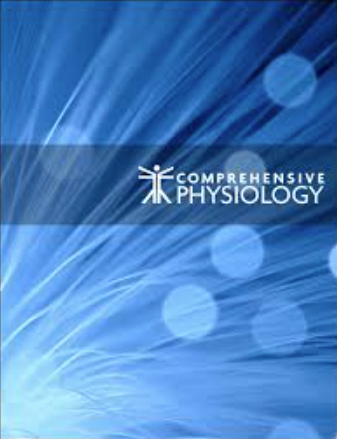下载PDF
{"title":"Multi-Omic Approaches to Identify Genetic Factors in Metabolic Syndrome.","authors":"Karen C Clark, Anne E Kwitek","doi":"10.1002/cphy.c210010","DOIUrl":null,"url":null,"abstract":"<p><p>Metabolic syndrome (MetS) is a highly heritable disease and a major public health burden worldwide. MetS diagnosis criteria are met by the simultaneous presence of any three of the following: high triglycerides, low HDL/high LDL cholesterol, insulin resistance, hypertension, and central obesity. These diseases act synergistically in people suffering from MetS and dramatically increase risk of morbidity and mortality due to stroke and cardiovascular disease, as well as certain cancers. Each of these component features is itself a complex disease, as is MetS. As a genetically complex disease, genetic risk factors for MetS are numerous, but not very powerful individually, often requiring specific environmental stressors for the disease to manifest. When taken together, all sequence variants that contribute to MetS disease risk explain only a fraction of the heritable variance, suggesting additional, novel loci have yet to be discovered. In this article, we will give a brief overview on the genetic concepts needed to interpret genome-wide association studies (GWAS) and quantitative trait locus (QTL) data, summarize the state of the field of MetS physiological genomics, and to introduce tools and resources that can be used by the physiologist to integrate genomics into their own research on MetS and any of its component features. There is a wealth of phenotypic and molecular data in animal models and humans that can be leveraged as outlined in this article. Integrating these multi-omic QTL data for complex diseases such as MetS provides a means to unravel the pathways and mechanisms leading to complex disease and promise for novel treatments. © 2022 American Physiological Society. Compr Physiol 12:1-40, 2022.</p>","PeriodicalId":10573,"journal":{"name":"Comprehensive Physiology","volume":"12 1","pages":"3045-3084"},"PeriodicalIF":5.2000,"publicationDate":"2021-12-29","publicationTypes":"Journal Article","fieldsOfStudy":null,"isOpenAccess":false,"openAccessPdf":"https://www.ncbi.nlm.nih.gov/pmc/articles/PMC9373910/pdf/nihms-1826555.pdf","citationCount":"0","resultStr":null,"platform":"Semanticscholar","paperid":null,"PeriodicalName":"Comprehensive Physiology","FirstCategoryId":"3","ListUrlMain":"https://doi.org/10.1002/cphy.c210010","RegionNum":2,"RegionCategory":"医学","ArticlePicture":[],"TitleCN":null,"AbstractTextCN":null,"PMCID":null,"EPubDate":"","PubModel":"","JCR":"Q1","JCRName":"PHYSIOLOGY","Score":null,"Total":0}
引用次数: 0
引用
批量引用
Abstract
Metabolic syndrome (MetS) is a highly heritable disease and a major public health burden worldwide. MetS diagnosis criteria are met by the simultaneous presence of any three of the following: high triglycerides, low HDL/high LDL cholesterol, insulin resistance, hypertension, and central obesity. These diseases act synergistically in people suffering from MetS and dramatically increase risk of morbidity and mortality due to stroke and cardiovascular disease, as well as certain cancers. Each of these component features is itself a complex disease, as is MetS. As a genetically complex disease, genetic risk factors for MetS are numerous, but not very powerful individually, often requiring specific environmental stressors for the disease to manifest. When taken together, all sequence variants that contribute to MetS disease risk explain only a fraction of the heritable variance, suggesting additional, novel loci have yet to be discovered. In this article, we will give a brief overview on the genetic concepts needed to interpret genome-wide association studies (GWAS) and quantitative trait locus (QTL) data, summarize the state of the field of MetS physiological genomics, and to introduce tools and resources that can be used by the physiologist to integrate genomics into their own research on MetS and any of its component features. There is a wealth of phenotypic and molecular data in animal models and humans that can be leveraged as outlined in this article. Integrating these multi-omic QTL data for complex diseases such as MetS provides a means to unravel the pathways and mechanisms leading to complex disease and promise for novel treatments. © 2022 American Physiological Society. Compr Physiol 12:1-40, 2022.
用多指标方法确定代谢综合征的遗传因素。
代谢综合征(MetS)是一种高度遗传性疾病,也是全球主要的公共卫生负担。代谢综合征的诊断标准是同时存在以下任何三种情况:高甘油三酯、低高密度脂蛋白/高低密度脂蛋白胆固醇、胰岛素抵抗、高血压和中心性肥胖。这些疾病在 MetS 患者身上协同作用,大大增加了中风、心血管疾病和某些癌症的发病率和死亡率。与 MetS 一样,这些疾病的每个组成部分本身都是一种复杂的疾病。作为一种遗传复杂的疾病,MetS 的遗传风险因素很多,但单个因素的作用并不大,通常需要特定的环境压力因素才能显现出来。如果将所有导致 MetS 疾病风险的序列变异加在一起,只能解释遗传变异的一小部分,这表明还有更多新的基因位点有待发现。在本文中,我们将简要概述解读全基因组关联研究(GWAS)和定量性状位点(QTL)数据所需的遗传学概念,总结 MetS 生理基因组学领域的现状,并介绍生理学家可用于将基因组学整合到他们自己的 MetS 及其任何组成特征研究中的工具和资源。正如本文所概述的那样,动物模型和人体中有大量的表型和分子数据可以利用。整合这些针对 MetS 等复杂疾病的多组学 QTL 数据,为揭示导致复杂疾病的途径和机制提供了一种手段,并为新型治疗方法带来了希望。© 2022 美国生理学会。Compr Physiol 12:1-40, 2022.
本文章由计算机程序翻译,如有差异,请以英文原文为准。


 求助内容:
求助内容: 应助结果提醒方式:
应助结果提醒方式:


